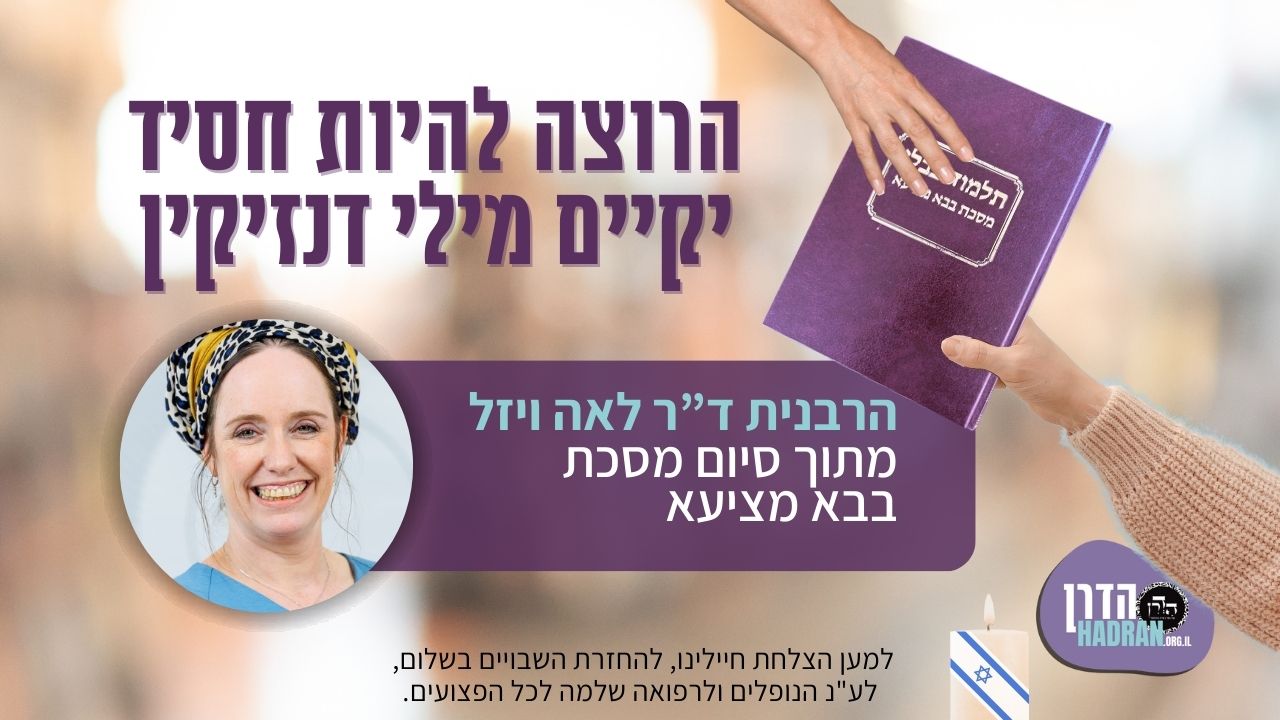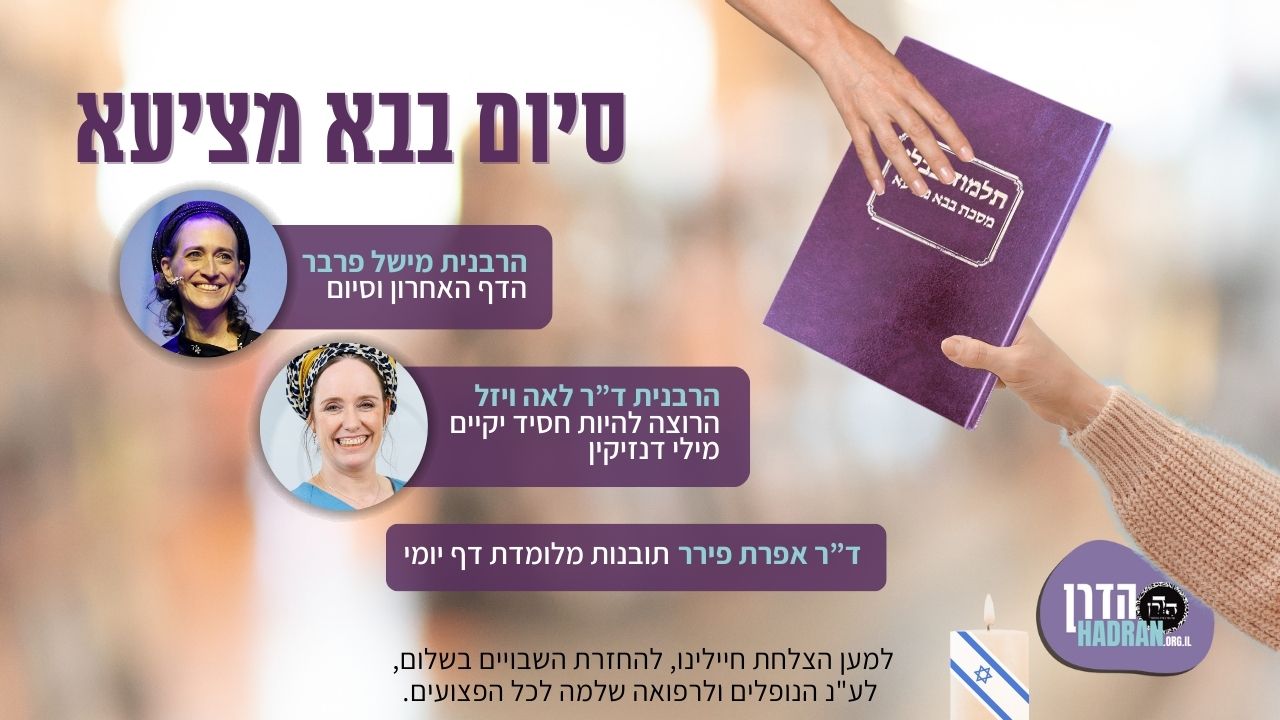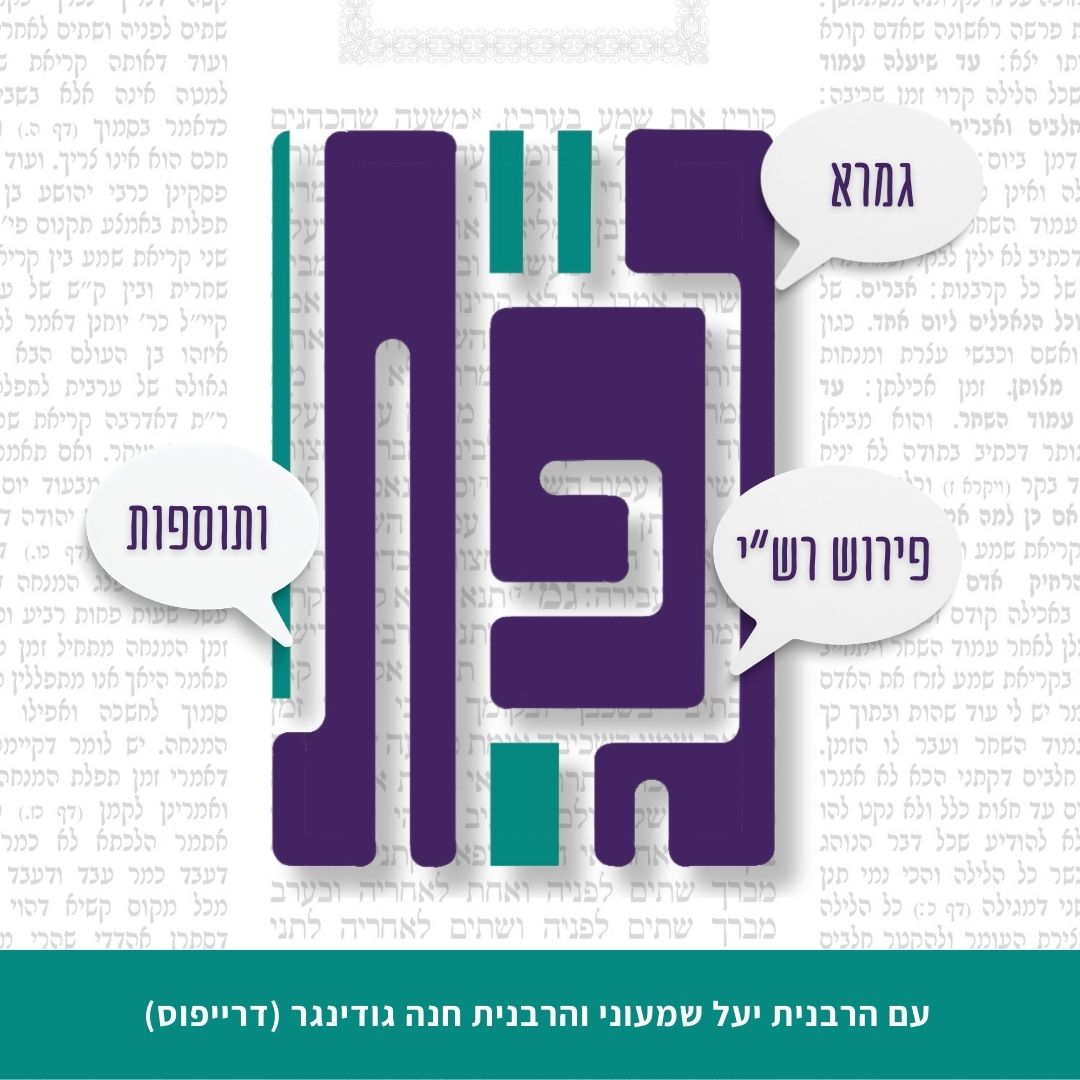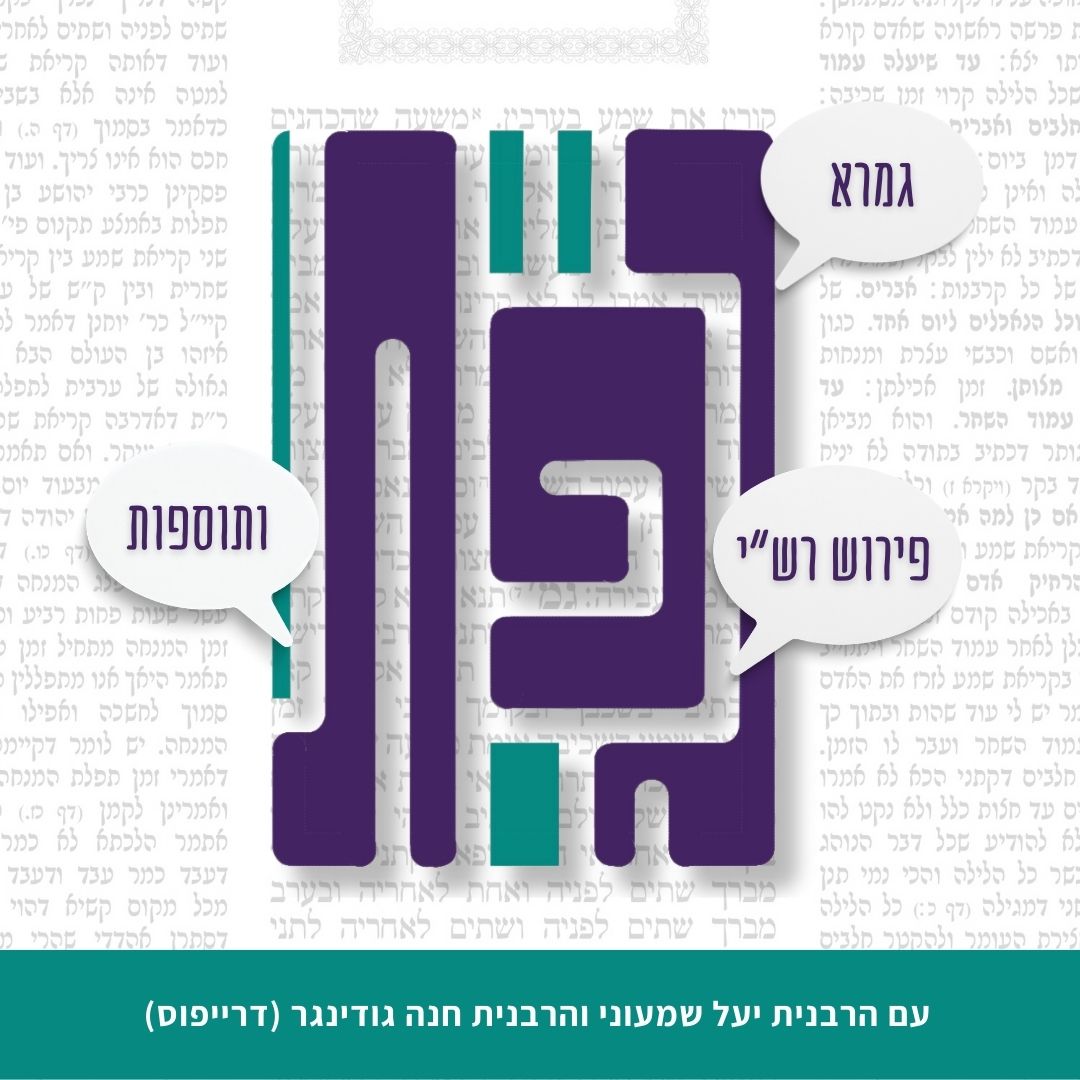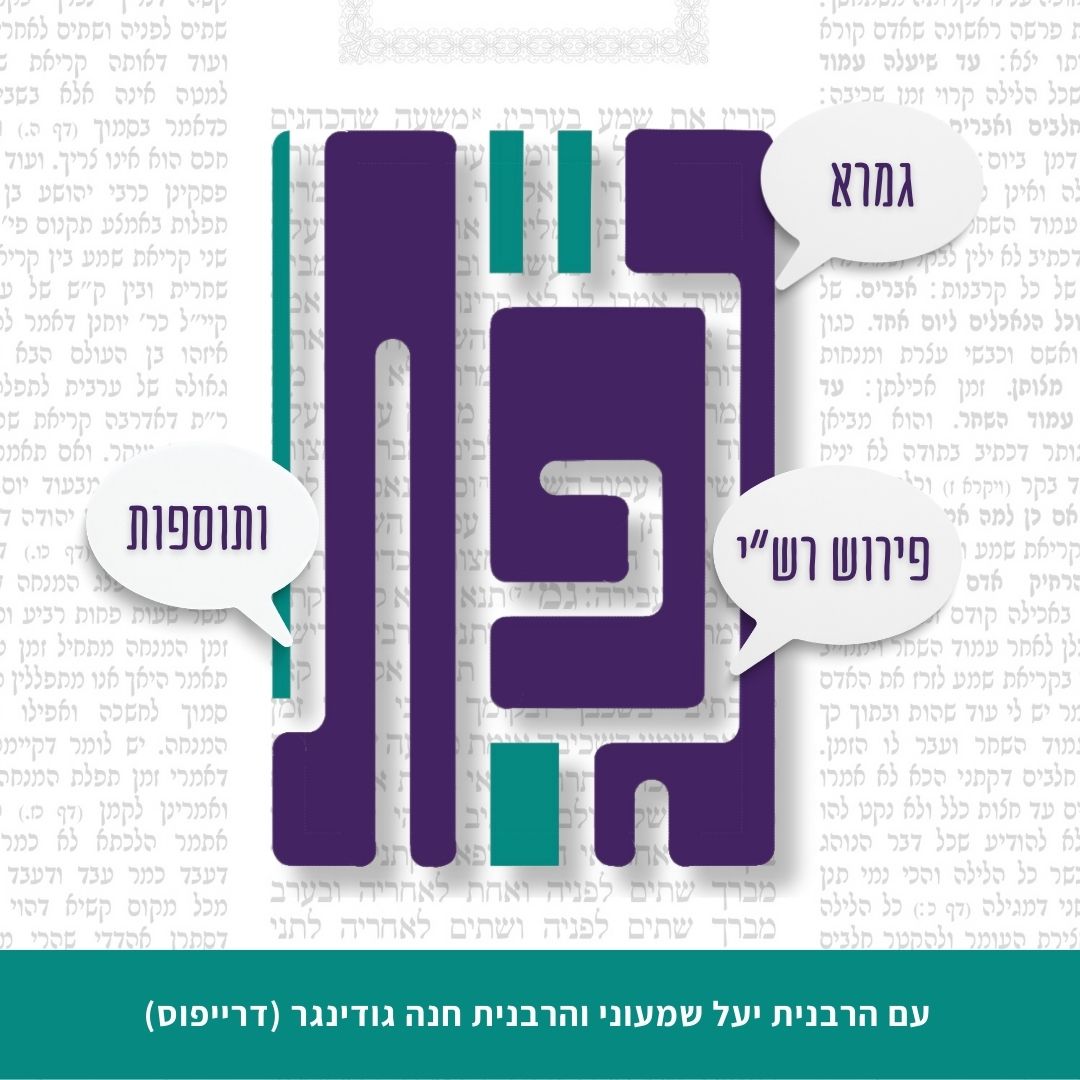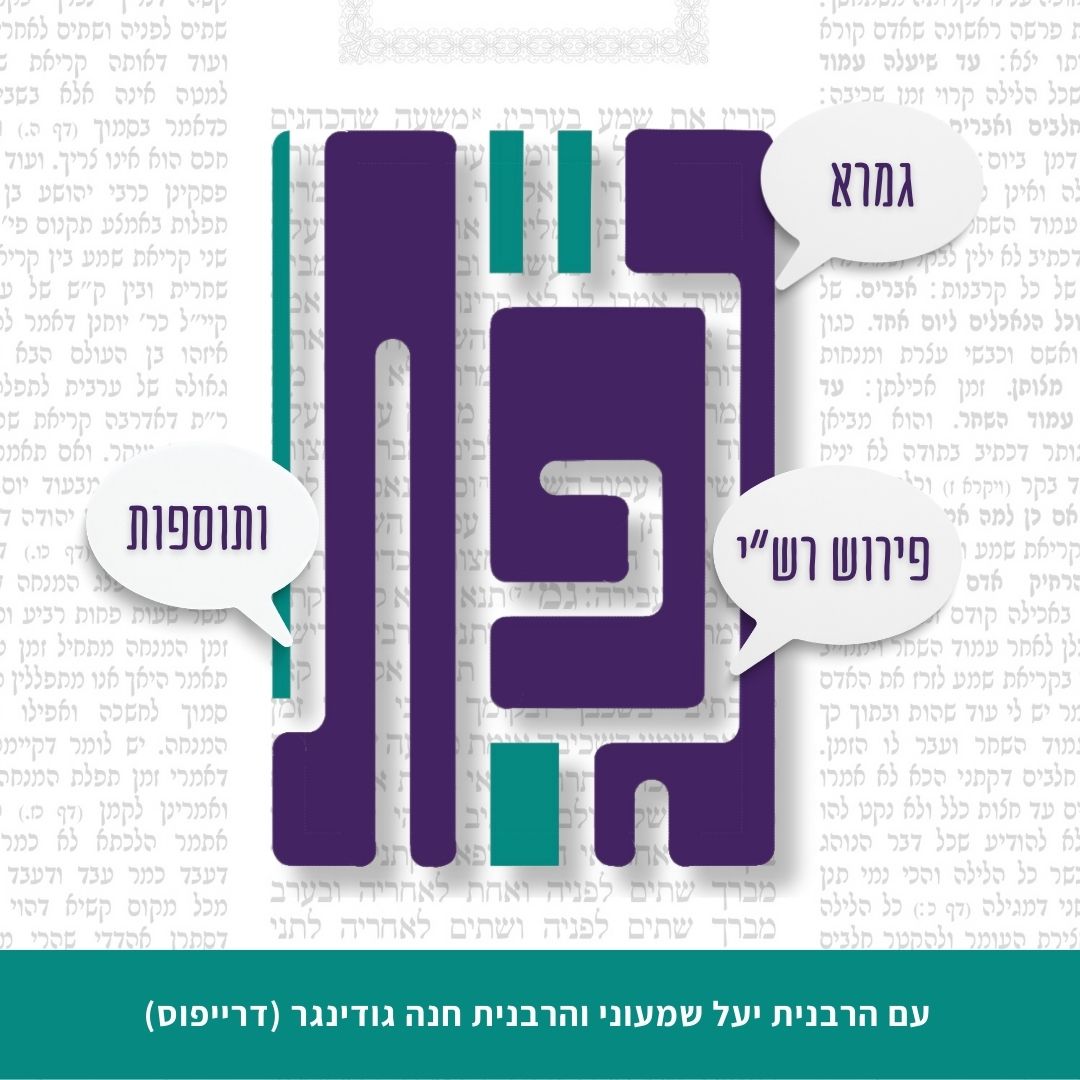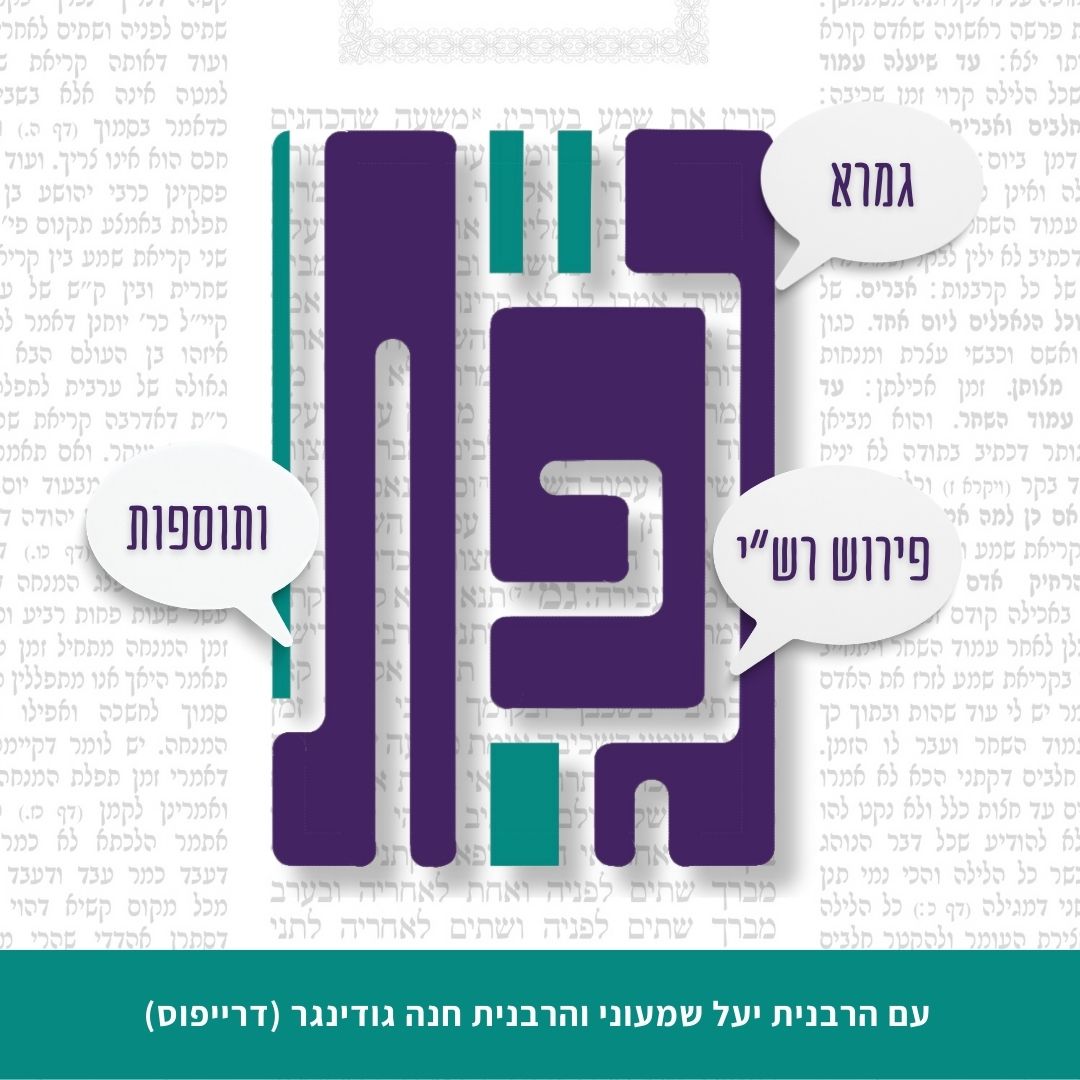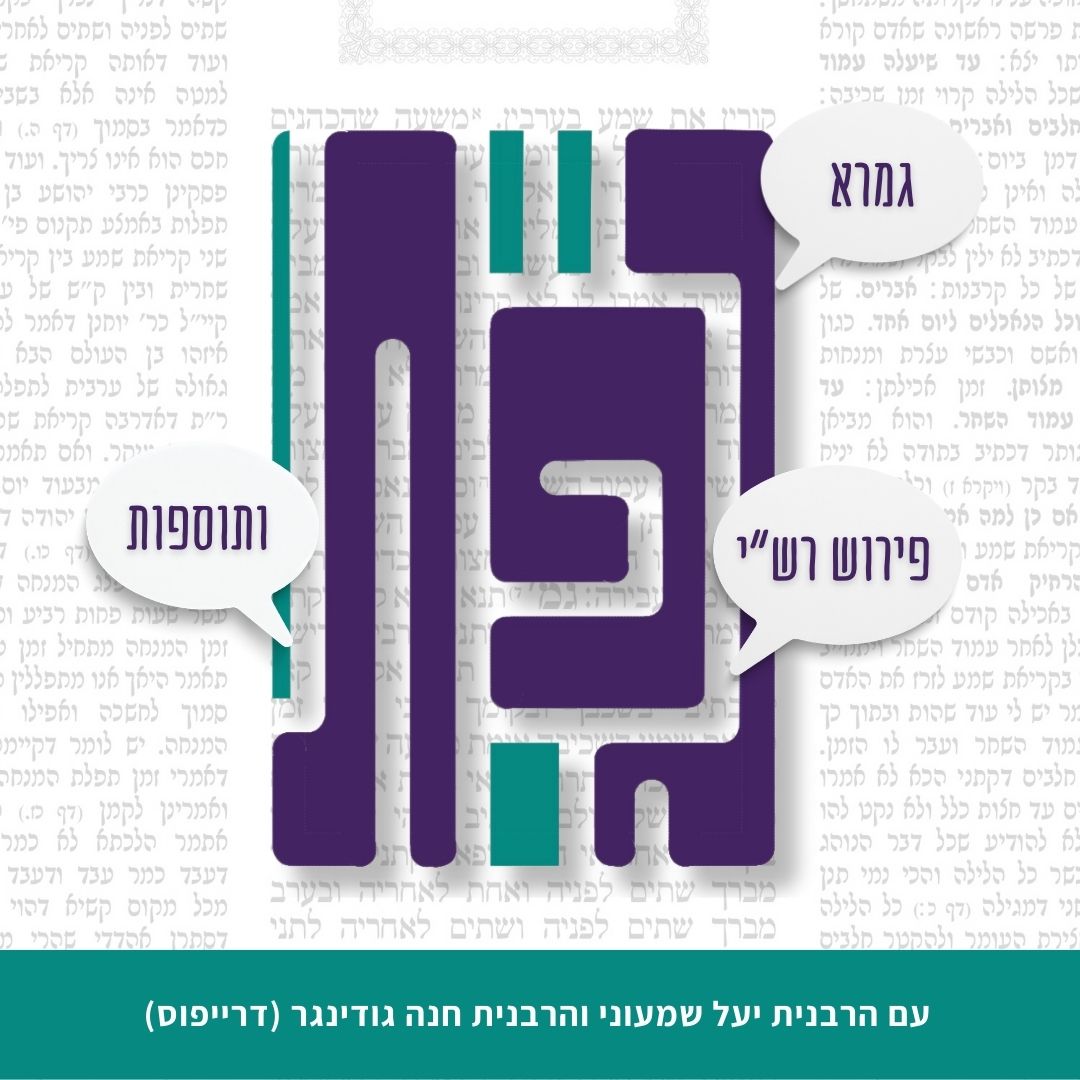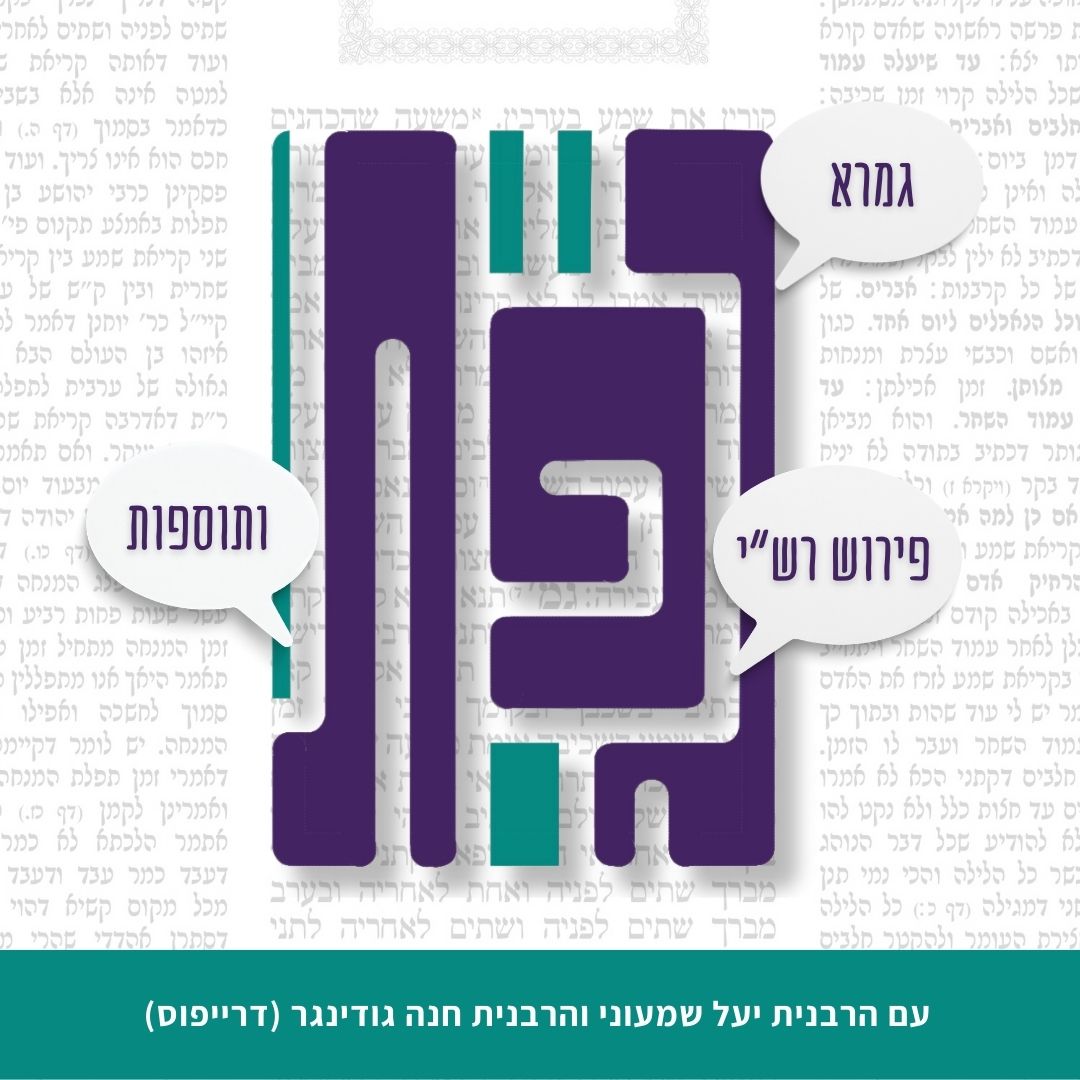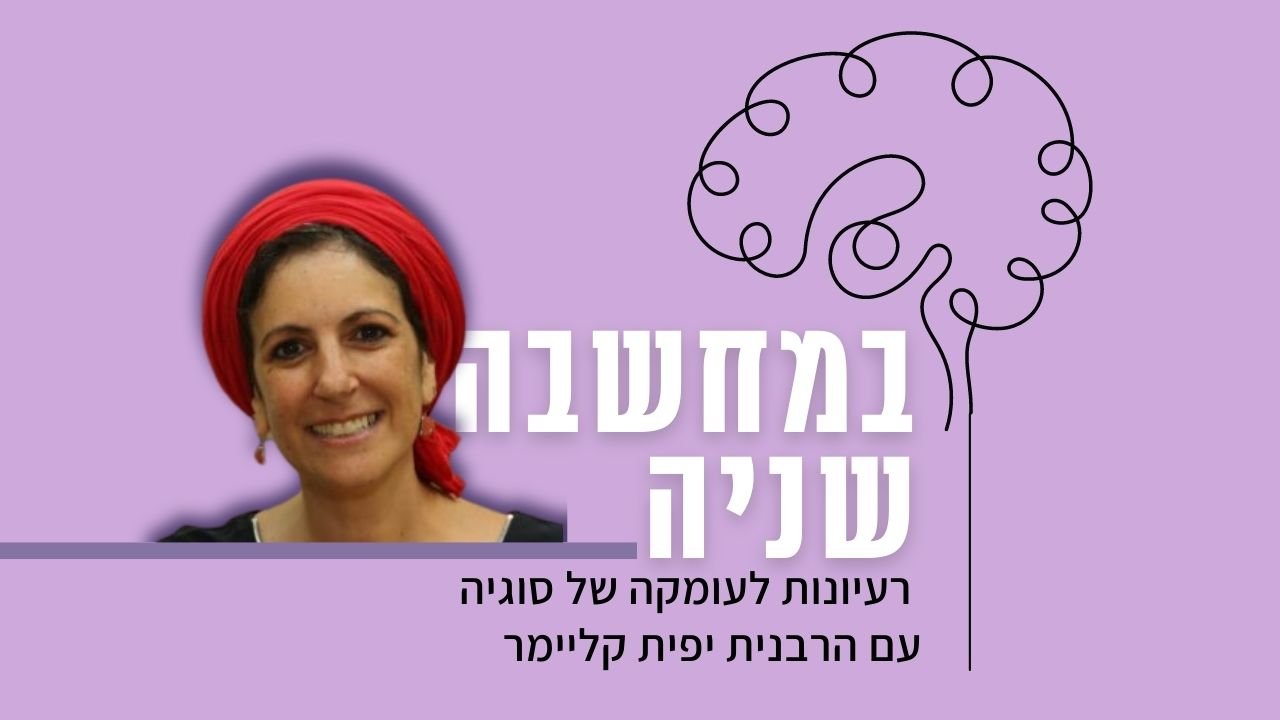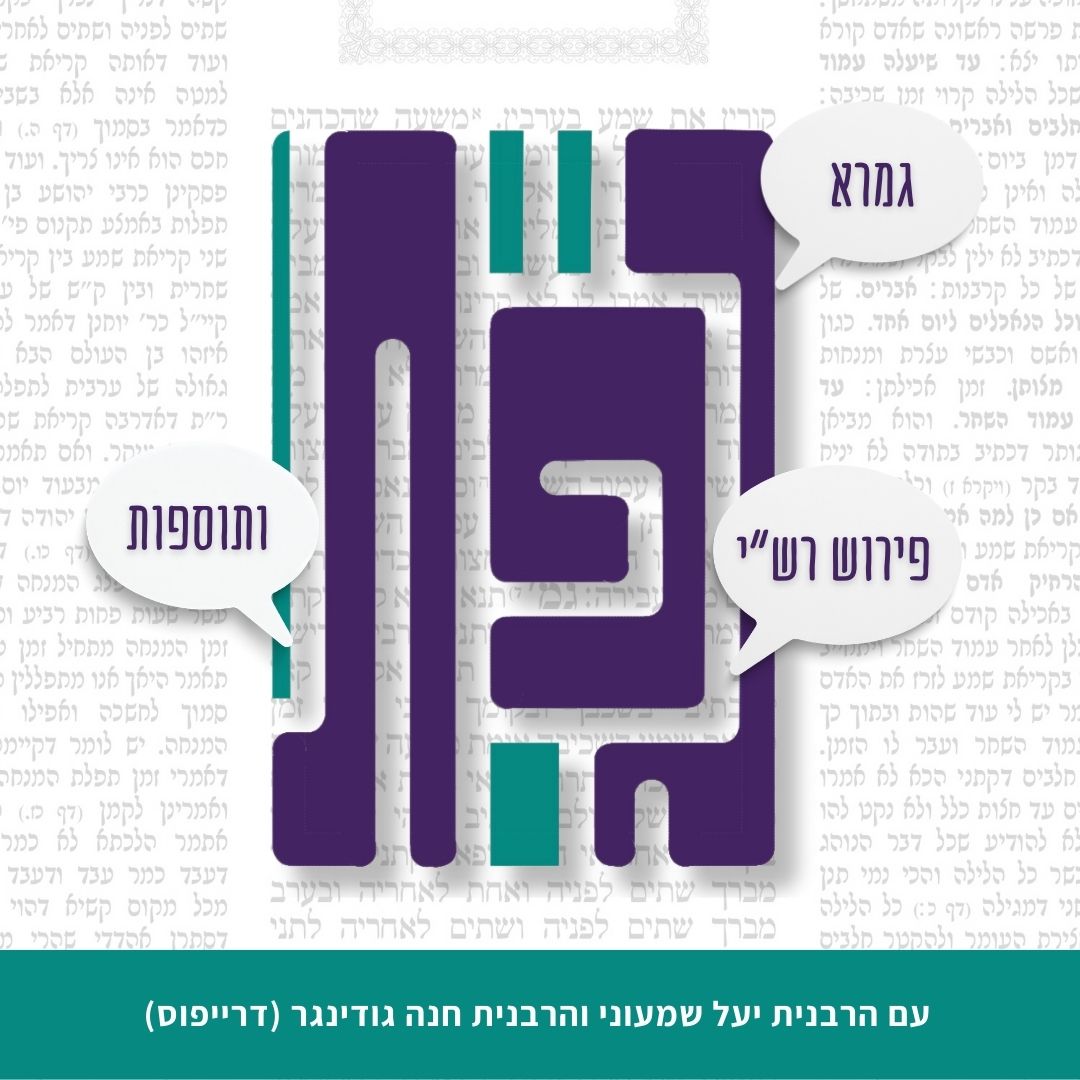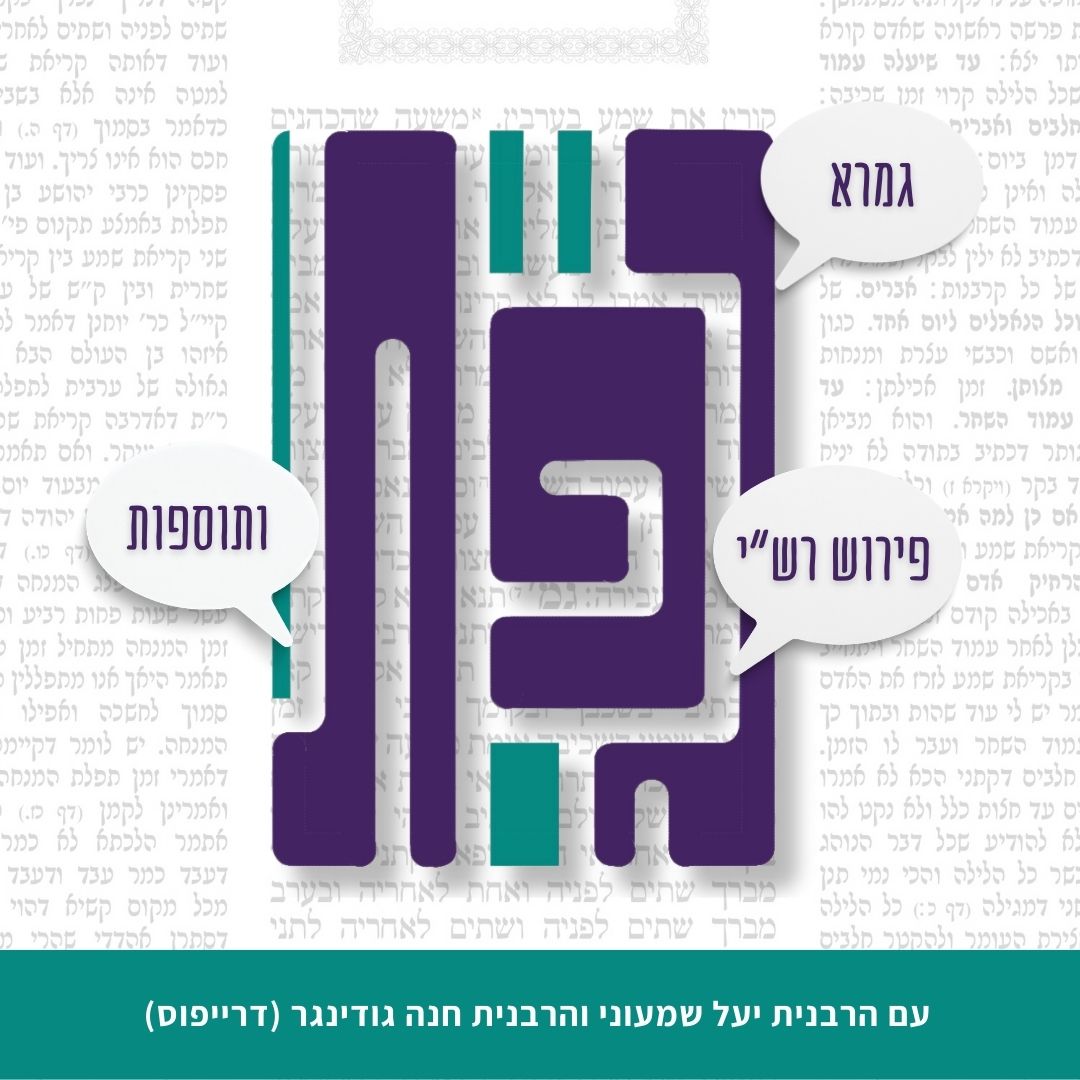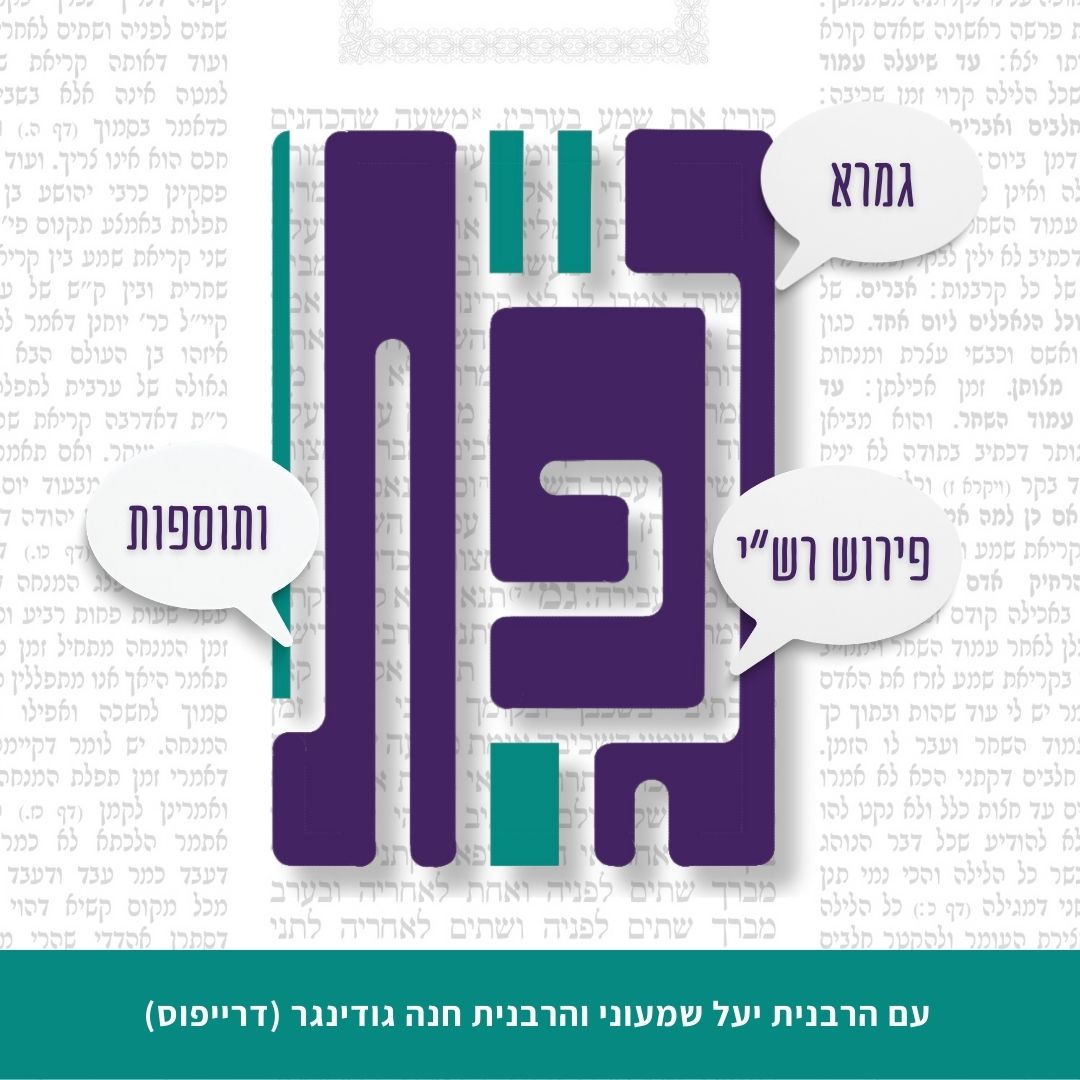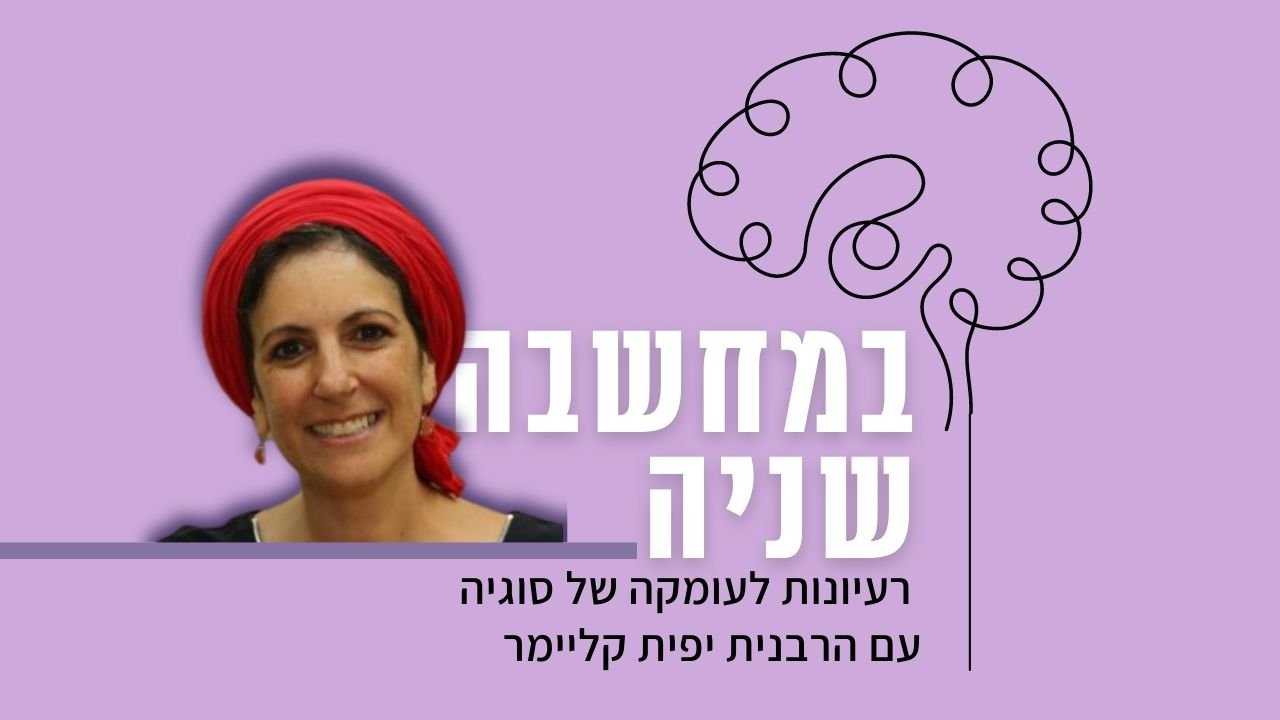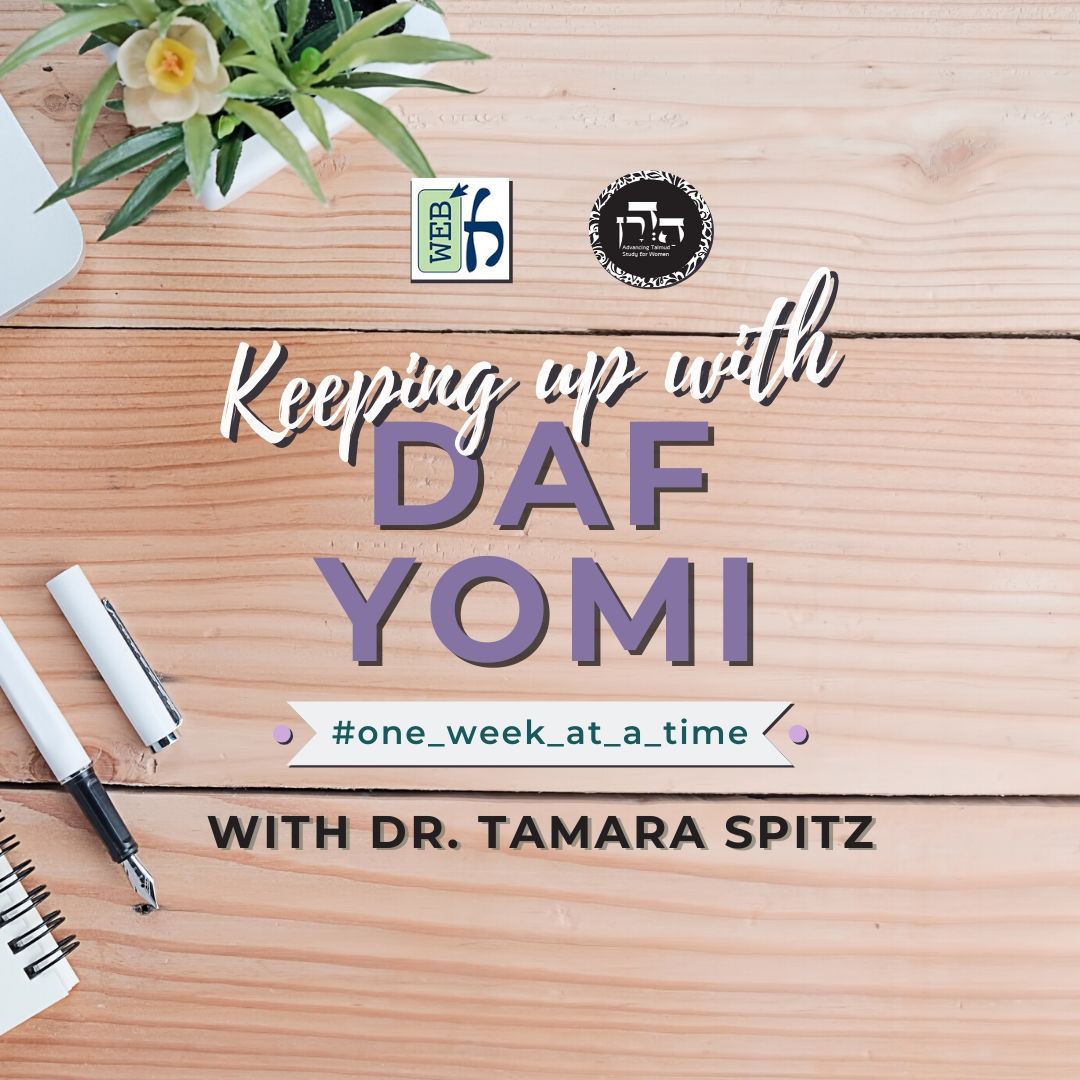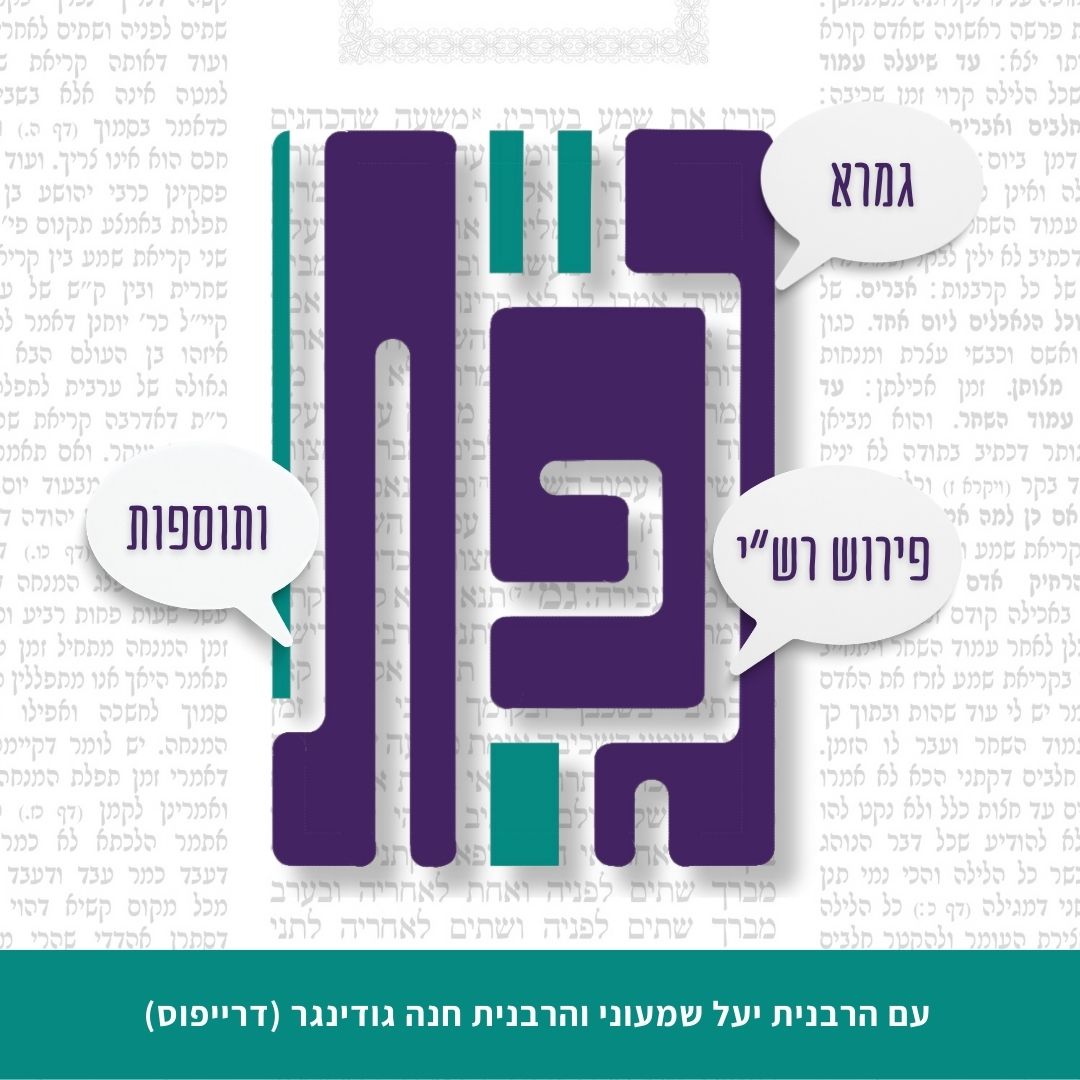בבא מציעא לט
״נְטוּשִׁים״ דִּבְעַל כׇּרְחָן, דִּכְתִיב: ״וְהַשְּׁבִיעִת תִּשְׁמְטֶנָּה וּנְטַשְׁתָּהּ״ – אַפְקַעְתָּא דְמַלְכָּא. ״רְטוּשִׁים״ דְּמִדַּעְתָּן, דִּכְתִיב: ״אֵם עַל בָּנִים רֻטָּשָׁה״.
The Gemara explains: Abandoned property [netushim]; this is referring to property that the owners vacated perforce. When it is written: “But the seventh year you shall let it rest and lie fallow [untashtah]” (Exodus 23:11), that is expropriation by edict of the King of the Universe. Forsaken property [retushim]; this is referring to property that the owners vacated of their own volition, as it is written: “A mother was forsaken [rutasha] with her sons” (Hosea 10:14), indicating that the mother was left with the sons, as all the men left.
תָּנָא: וְכוּלָּם שָׁמִין לָהֶם כְּאָרִיס. אַהֵיָיא? אִילֵּימָא אַשְּׁבוּיִין, הַשְׁתָּא זָרִיז וְנִשְׂכָּר הֲוָה, מַאי דְּאַשְׁבַּח מִיבַּעְיָא? אֶלָּא אַרְטוּשִׁים – וְהָא ״מוֹצִיאִין אוֹתָן מִיָּדוֹ״ קָתָנֵי!
A Sage taught with regard to the baraita discussing the case of one who descends to the property of another: And for all of them, the court appraises their work as one would appraise the work of a sharecropper. The Gemara asks: To which property in the baraita is this ruling stated? If we say it is stated with regard to captives’ property, now that the tanna stated that he is diligent and he profits, as he may take as much produce as he wishes, is it necessary to say that he can take a share of what he did to enhance the field? Rather, say that it is stated with regard to forsaken property. But isn’t it taught: The court removes it from his possession? The legal status of the one who labored in the field is not at all similar to that of a sharecropper.
אֶלָּא אַנְּטוּשִׁים. לְמַאן? אִילֵּימָא לְרַבָּנַן – הָא אָמְרִי מוֹצִיאִין אוֹתוֹ מִיָּדוֹ. אִי רַבָּן שִׁמְעוֹן בֶּן גַּמְלִיאֵל – הָא אָמַר שָׁמַעְתִּי שֶׁהַנְּטוּשִׁים כִּשְׁבוּיִין.
Rather, say that it is stated with regard to abandoned property. The Gemara asks: In accordance with whose opinion? If we say it is in accordance with the opinion of the Rabbis, don’t they say: The court removes it from his possession? And if it is in accordance with the opinion of Rabban Shimon ben Gamliel, doesn’t he say: I heard that the legal status of abandoned property is like that of captives’ property, and the rights of the one who labored in the field are superior to those of a sharecropper.
כִּשְׁבוּיִין וְלֹא שְׁבוּיִין. כִּשְׁבוּיִין – דְּאֵין מוֹצִיאִין אוֹתָן מִיָּדוֹ, וְלֹא שְׁבוּיִין – דְּאִילּוּ הָתָם זָרִיז וְנִשְׂכָּר, וְאִילּוּ הָכָא שָׁיְימִינַן לֵיהּ כְּאָרִיס.
The Gemara answers: According to the opinion of Rabban Shimon ben Gamliel, the legal status of that property is in some ways like that of captives’ property but in other ways not like that of captives’ property. It is like that of captives’ property in that the court does not remove it from his possession. But it is not like that of captives’ property, as there, in the case of captives’ property, the one working the field is diligent and he profits from the produce he takes, while here, one appraises their work as one would appraise the work of a sharecropper.
וּמַאי שְׁנָא מֵהָא דִּתְנַן: הַמּוֹצִיא הוֹצָאוֹת עַל נִכְסֵי אִשְׁתּוֹ, הוֹצִיא הַרְבֵּה וְאָכַל קִימְעָא, קִימְעָא וְאָכַל הַרְבֵּה – מַה שֶּׁהוֹצִיא הוֹצִיא, וּמַה שֶּׁאָכַל אָכַל.
The Gemara asks: And what is different in this case from that which we learned in a mishna (79b): In the case of one who outlays expenditures to enhance his wife’s usufruct property, which belongs to his wife but whose profits are his for the duration of their marriage, if the marriage ends in divorce or his death and she reclaims the property, whether he spent much to enhance the property and consumed little and did not derive benefit commensurate with his investment, or whether he spent little and consumed much, the principle is: What he spent, he spent, and what he consumed, he consumed. His labor is not appraised like that of a sharecropper.
הָא לָא דָּמְיָא אֶלָּא לְהָא דִּתְנַן: הַמּוֹצִיא הוֹצָאוֹת עַל נִכְסֵי אִשְׁתּוֹ קְטַנָּה – כְּמוֹצִיא עַל נִכְסֵי אַחֵר דָּמֵי. אַלְמָא: כֵּיוָן דְּלָא סָמְכָא דַּעְתֵּיהּ, תַּקִּינוּ לֵיה רַבָּנַן כִּי הֵיכִי דְּלָא לַפְסְדִינְהוּ, הָכָא נָמֵי תַּקִּינוּ לֵיה רַבָּנַן כִּי הֵיכִי דְּלָא לַפְסְדִינְהוּ.
The Gemara answers: This case is comparable only to that which we learned in a statement that Rabbi Ya’akov said that Rav Ḥisda said: The legal status of one who outlays expenditures to enhance the usufruct property of his minor wife, whose father died and whose brother and mother married her off, is like that of one who outlays expenditures to enhance the property of another, as this is a marriage by rabbinic law and she can void the marriage by performing refusal. If the husband spent much to enhance the property and consumed little, his work is assessed like that of a sharecropper. Apparently, since he does not rely on the fact that her property will remain his, the Sages instituted on his behalf that he be reimbursed for his expenditures so that he will not devalue the property. Here too, the Sages instituted on behalf of the one who labored in the field that he be reimbursed for his labor, so that he will not devalue the property.
וְכוּלָּן שָׁמִין לָהֶם כְּאָרִיס – וְכוּלָּן לְאֵיתוֹיֵי מַאי?
The Gemara asks with regard to the phrase written in the baraita: And for all of them, the court appraises their work as one would appraise the work of a sharecropper, what additional case does it serve to include, as apparently it applies only to property of those who abandoned it, in accordance with the opinion of Rabban Shimon ben Gamliel?
לְאֵיתוֹיֵי הָא דְּאָמַר רַב נַחְמָן אָמַר שְׁמוּאֵל: שָׁבוּי שֶׁנִּשְׁבָּה מוֹרִידִין קָרוֹב לִנְכָסָיו, יָצָא לְדַעַת אֵין מוֹרִידִין קָרוֹב לִנְכָסָיו. וְרַב נַחְמָן דִּידֵיהּ אָמַר: בּוֹרֵחַ הֲרֵי הוּא כְּשָׁבוּי. בּוֹרֵחַ מֵחֲמַת מַאי? אִילֵימָא מֵחֲמַת כְּרָגָא – הַיְינוּ לְדַעַת, אֶלָּא בּוֹרֵחַ מֵחֲמַת מְרָדִין.
The Gemara answers: It comes to include that which Rav Naḥman says that Shmuel says: For a captive who was taken captive, the court authorizes a relative to descend and manage his property. If he left of his own volition, the court does not authorize a relative to descend and manage his property. And Rav Naḥman says his own statement: The legal status of one who flees is like that of a captive. The Gemara asks: One who flees for what reason? If we say that he flees due to a tax [karga] that he attempts to evade, that is the case of one who left of his own volition. Rather, the reference is to one who flees due to an allegation that he committed murder [meradin], and he flees to avoid execution. Therefore, his legal status is that of a captive.
אָמַר רַב יְהוּדָה אָמַר שְׁמוּאֵל: שָׁבוּי שֶׁנִּשְׁבָּה וְהִנִּיחַ קָמָה לִקְצוֹר, עֲנָבִים לִבְצוֹר, תְּמָרִים לִגְדּוֹר, זֵיתִים לִמְסוֹק – בֵּית דִּין יוֹרְדִין לִנְכָסָיו וּמַעֲמִידִין אַפּוֹטְרוֹפּוֹס, וְקוֹצֵר וּבוֹצֵר וְגוֹדֵר וּמוֹסֵק, וְאַחַר כָּךְ מוֹרִידִין קָרוֹב לִנְכָסָיו. וְלוֹקֵים אַפּוֹטְרוֹפָּא לְעוֹלָם! אַפּוֹטְרוֹפָּא לְדִיקְנָנֵי לָא מוֹקְמִינַן.
Rav Yehuda says that Shmuel says: In the case of a captive who was taken captive and left in his field standing grain to be reaped, or grapes to be harvested, or dates to be cut, or olives to be picked, and the owner of the produce will incur significant loss if they are not harvested, the court descends to his property and appoints a steward to manage his property. And he reaps, and harvests, and cuts, and picks, and thereafter the court authorizes a relative to descend and manage his property. The Gemara asks: If that is an option, let the court always appoint a steward to manage the captive’s field. The Gemara answers: We do not appoint a steward [apoteropa] for the bearded, i.e., adults. A steward is appointed only for orphans.
אָמַר רַב הוּנָא: אֵין מוֹרִידִין קָטָן לְנִכְסֵי שָׁבוּי, וְלֹא קָרוֹב לְנִכְסֵי קָטָן, וְלָא קָרוֹב מֵחֲמַת קָרוֹב לְנִכְסֵי קָטָן.
Rav Huna says: The court does not authorize a minor, even if he is an heir, to descend to the property of a captive. And the court does not authorize a relative who is an heir to descend to the property of a minor that has no one to tend to it. And the court does not authorize a relative due to a relative to descend to the property of a minor.
אֵין מוֹרִידִין קָטָן לְנִכְסֵי שָׁבוּי, דִּלְמָא מַפְסֵיד לְהוּ. וְלָא קָרוֹב מֵחֲמַת קָרוֹב לְנִכְסֵי קָטָן, בְּאַחֵי מֵאִימָּא. וְלָא קָרוֹב לְנִכְסֵי קָטָן, כֵּיוָן דְּלָא מָחֵי – אָתֵי לְאַחְזוֹקֵי בֵּיהּ.
The Gemara elaborates: The court does not authorize a minor to descend to the property of a captive, lest he devalue the property. And the court does not authorize a relative due to a relative to descend to the property of a minor. The Gemara explains: It is a case where the minor has a paternal half-brother and that brother has a maternal half-brother. The concern is that the latter, who is not at all related to the minor who owns the field, will claim that he inherited the field from his brother. And the court does not authorize a relative to descend to the property of a minor. The concern is that since the minor does not protest at the appropriate time and assert that the property does not belong to his relative, that relative will come to assume presumptive ownership of the field.
אָמַר רָבָא, שְׁמַע מִינֵּיהּ מִדְּרַב הוּנָא: אֵין מַחֲזִיקִין בְּנִכְסֵי קָטָן,
Rava said: Learn from the statement of Rav Huna that one cannot assume presumptive ownership of the property of a minor. Even if one took possession of and used the property of a minor for three years, this does not indicate that he has presumptive ownership of the property. Rav Huna restricted the descent specifically of relatives to the property of a minor, indicating that those are not concerns when it is a non-relative who descends to manage the field. Apparently, the reason that there is no concern is that one cannot assume presumptive ownership of the property of a minor.
וַאֲפִילּוּ הִגְדִּיל.
And even if one continues to occupy the field after the minor reached majority, he does not assume presumptive ownership, as perhaps the minor was unaware that he is the field’s owner.
וְלָא אֲמַרַן אֶלָּא בְּאַחֵי דְאַבָּא, אֲבָל בְּאַחֵי דְאִמָּא לֵית לַן בַּהּ. וַאֲחֵי דְאַבָּא נָמֵי לָא אֲמַרַן אֶלָּא בְּאַרְעָתָא, אֲבָל בְּבָתֵּי לֵית לַן בַּהּ. וּבְאַרְעָתָא נָמֵי לָא אֲמַרַן אֶלָּא דְּלָא עֲבִיד עִיטְדָּא, אֲבָל עֲבִיד עִיטְדָּא – קָלָא אִית לַהּ.
The Gemara comments: And we said only in the case of paternal brothers that the court does not authorize a relative to descend and manage the property of a minor, as they are potential heirs. But in the case of maternal brothers we have no problem with it, as they are not potential heirs. And in the case of paternal brothers, we said that the court does not authorize a relative only with regard to land. But in the case of houses we have no problem with it, as there are neighbors who can testify that the house does not belong to those brothers. And with regard to land too, we said that it is only in a case where the minor’s father did not draft a document of division of the property that the court does not authorize a relative. But in a case where the minor’s father drafted a document of division, it generates publicity, and everyone knows which portion belongs to each of the brothers.
וְלָא הִיא – לָא שְׁנָא אַחֵי דְאַבָּא וְלָא שְׁנָא אַחֵי דְאִמָּא, לָא שְׁנָא אַרְעָתָא וְלָא שְׁנָא בָּתֵּי, וְלָא שְׁנָא עֲבִיד עִיטְדָּא לָא שְׁנָא לָא עֲבִיד עִיטְדָּא – לָא מַחֲתִינַן.
The Gemara concludes: But this is not so, as there is no difference whether they are paternal brothers and there is no difference whether they are maternal brothers; it is no different whether it is land, and it is no different whether it is houses; and it is no different whether he drafted a document of division, and it is no different whether he did not draft a document of division. We do not authorize a relative to descend and manage the property of a minor, to avoid that relative being regarded as the owner of the property.
הָהִיא סָבְתָּא דַּהֲוַיָא לַהּ תְּלָת בְּנָתָא. אִישְׁתְּבַאי אִיהִי וַחֲדָא בְּרַתָּא. אִידַּךְ תַּרְתֵּי בְּנָתָא, שְׁכִיבָא חֲדָא מִינַּיְיהוּ וּשְׁבַקָה יָנוֹקָא. אֲמַר אַבָּיֵי: הֵיכִי נַעֲבֵיד? לוֹקְמִינְהוּ לְנִכְסֵי בִּידָא דַּאֲחָתָא – דִּלְמָא שְׁכִיבָא סָבְתָּא וְאֵין מוֹרִידִין קָרוֹב לְנִכְסֵי קָטָן! נוֹקְמִינְהוּ לְנִכְסֵיה בִּידָא דְּיָנוֹקָא – דִּלְמָא לָא שְׁכִיבָא סָבְתָּא וְאֵין מוֹרִידִין קָטָן לְנִכְסֵי שָׁבוּי!
§ The Gemara relates: There was a certain old woman who had three daughters. She and one daughter were taken captive. Of the other two daughters, one died and left behind a minor son. Abaye said: What should we do in this case with the property of the old woman? If one suggests: Let us establish the property in the possession of the surviving sister, that is problematic. There is a concern that perhaps the old woman died in captivity, and if the old woman died, the minor inherits one-third of her property, and the court does not authorize a relative to descend and manage the property of a minor. If one suggests: Let us establish the property in the possession of the minor, that is also problematic. There is concern that perhaps the old woman did not die, and the court does not authorize a minor to descend and manage the property of a captive.
אָמַר אַבָּיֵי: הִלְכָּךְ, פַּלְגָא יָהֲבִינָא לַהּ לַאֲחָתָא. וְאִידַּךְ פַּלְגָא מוֹקְמִינַן לֵיהּ אַפּוֹטְרוֹפָּא לְיָנוֹקָא. רָבָא אָמַר: מִגּוֹ דְּמוֹקְמִינַן אַפּוֹטְרוֹפָּא לְפַלְגָא, מוֹקְמִינַן לֵיהּ אַפּוֹטְרוֹפָּא לְאִידַּךְ פַּלְגָא.
Abaye said: Consequently, half of the property is given to the surviving sister. If the captives died, she is the inheritor of half the property; if the captives are alive, this is a case where the court authorizes a relative to descend and manage the property of a captive. And for the other half of the property, we establish a steward on behalf of the minor, as it is conceivable that he inherited the property. Rava said: Once we appoint a steward for half of the property, we appoint a steward for the other half of the property, and it remains under his stewardship until the state of the captives becomes known.
לְסוֹף שְׁמַעוּ דִּשְׁכִיבָא סָבְתָּא. אָמַר אַבָּיֵי: תִּילְתָּא יָהֲבִינַן לַהּ לַאֲחָתָא, וְתִילְתָּא יָהֲבִינַן לֵיהּ לְיָנוֹקָא. וְאִידַּךְ תִּילְתָּא יָהֲבִינַן דַּנְקָא לַאֲחָתָא, וְאִידַּךְ דַּנְקָא מוֹקְמִינַן לֵיהּ אַפּוֹטְרוֹפָּא לְיָנוֹקָא. רָבָא אָמַר: מִגּוֹ דְּמוֹקֵים אַפּוֹטְרוֹפָּא לְדַנְקָא מוֹקְמִינַן נָמֵי אַפּוֹטְרוֹפָּא לְאִידַּךְ דַּנְקָא.
Ultimately, they heard that that old woman died, and they did not hear the fate of the captive daughter. Abaye said: We give one-third of the property to the surviving daughter. And we give one-third of the property to the minor, as he inherits it from his grandmother by virtue of his deceased mother. And of the other one-third of the property, which belongs to the captive sister whose fate is unknown, we give one-sixth [danka] to the surviving sister, and for the other one-sixth, we appoint a steward on behalf of the minor, as perhaps the sister died and the property is his. Rava said: Once we appoint a steward for one-sixth of the property, we also appoint a steward for the other one-sixth of the property, until the fate of the captive sister is known.
מָרִי בַּר אִיסַק אֲתָא לֵיהּ אַחָא מִבֵּי חוֹזָאֵי. אֲמַר לֵיהּ: פְּלוֹג לִי. אֲמַר לֵיהּ: לָא יָדַעְנָא לָךְ.
§ The Gemara relates: Mari bar Isak, who was a wealthy and powerful man, had a brother whom he did not previously know, come to him from Bei Ḥozai, which was distant from central Babylonia. His brother said to him: Divide the property that you inherited from our father and give half to me, as I am your brother. Mari said to him: I do not know who you are.
אֲתָא לְקַמֵּיהּ דְּרַב חִסְדָּא. אֲמַר לֵיהּ: שַׁפִּיר קָאָמַר לָךְ, שֶׁנֶּאֱמַר: ״וַיַּכֵּר יוֹסֵף אֶת אֶחָיו וְהֵם לֹא הִכִּרֻהוּ״ – מְלַמֵּד שֶׁיָּצָא בְּלֹא חֲתִימַת זָקָן וּבָא בַּחֲתִימַת זָקָן. אֲמַר לֵיהּ: זִיל אַיְיתִי סָהֲדִי דַּאֲחוּהּ אַתְּ. אֲמַר לֵיהּ: אִית לִי סָהֲדִי, וְדָחֲלִי מִינֵּיהּ דְּגַבְרָא אַלִּימָא הוּא. אֲמַר לֵיהּ לְדִידֵיהּ: זִיל אַנְתְּ אַיְיתִי סָהֲדֵי דְּלָאו אֲחוּךְ הוּא.
The case came before Rav Ḥisda. He said to the brother: Mari bar Isak spoke well to you, as it is stated: “And Joseph knew his brothers and they knew him not” (Genesis 42:8). This teaches that Joseph left Eretz Yisrael without the trace of a beard, and he came with the trace of a beard. This proves that it is possible for brothers not to recognize each other. Mari bar Isak may be telling the truth when he claims he does not recognize you. Rav Ḥisda said to the brother: Go bring witnesses that you are his brother. The brother said to him: I have witnesses, but they fear Mari bar Isak because he is a violent man. Rav Ḥisda said to Mari bar Isak: You go bring witnesses that he is not your brother.
אֲמַר לֵיהּ: דִּינָא הָכִי?! הַמּוֹצִיא מֵחֲבֵירוֹ עָלָיו הָרְאָיָה. אֲמַר לֵיהּ: הָכִי דָּיְינִינָא לָךְ וּלְכֹל אַלִּימֵי דְּחַבְרָךְ. אֲמַר לֵיהּ: סוֹף סוֹף אָתוּ סָהֲדִי וְלָא מַסְהֲדִי. אֲמַר לֵיהּ: תַּרְתֵּי לָא עָבְדִי.
Mar bar Isak said to him: Is this the halakha? Isn’t there a principle in these cases that the burden of proof rests upon the claimant? Rav Ḥisda said to him: This is the way I judge you and all of your fellow violent people. Mari bar Isak said to him: Ultimately, if that is your concern, witnesses will come, and they will not testify in his favor. They will lie and testify in my favor. Rav Ḥisda said to him: They will not perform two wrongs; they will not refrain from telling the truth and also testify falsely.
לְסוֹף אֲתוֹ סָהֲדִי דַּאֲחוּהּ הוּא. אֲמַר לֵיהּ: לִפְלוֹג לִי נָמֵי מִפַּרְדֵּיסֵי וּבוּסְתָּנִי דִּשְׁתַל. אֲמַר לֵיהּ: שַׁפִּיר קָאָמַר לָךְ, דִּתְנַן: הִנִּיחַ בָּנִים גְּדוֹלִים וּקְטַנִּים, וְהִשְׁבִּיחוּ גְּדוֹלִים אֶת הַנְּכָסִים – הִשְׁבִּיחוּ לָאֶמְצַע.
Ultimately, witnesses came and testified that the person from Bei Ḥozai was his brother. At that point, the brother said to Mari bar Isak: Divide and give me half of the orchards and the gardens that you planted since the death of our father as well. Rav Ḥisda said to Mari bar Isak: He spoke well to you, as we learned in a mishna (Bava Batra 143b): If one died and left adult and minor sons, and the adult sons enhanced the property, they enhanced the property, and the profit goes to the middle, i.e., it is divided between the adult sons and the minor sons.
